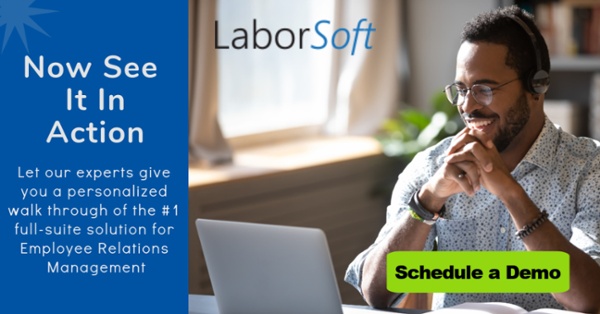9 Priorities for a Successful Employee Investigation Process
Read Time 3 mins | Oct 5, 2023 | Written by: Frankie Kourtis

When an employee reports alleged conduct that violates an internal policy or a state or federal law, the employer has an obligation to investigate the complaint. An employer that fails to take prompt action for many types of complaints could face legal liability to the complainant.
For example, if an employer ignores complaints of alleged sexual harassment, it could be liable for damages under Title VII of the Civil Rights Act of 1964. Other federal statutes that might require investigations include the Age Discrimination in Employment Act (ADEA), the Americans with Disabilities Act (ADA), and the Occupational Safety and Health Act (OSHA). Employers need policies and procedures for investigating employee complaints, and they need to make their employees aware of them.
The following list identifies nine priorities for employers when preparing for and conducting employee investigations. Read on to learn more about how to investigate an employee complaint and how employee investigation software can help.
1. Clearly-Defined Workplace Policies
First, employers need policies regarding matters like employee conduct and procedures for investigating employee complaints. It needs to make employees aware of these policies and what their rights are if they file or are the subject of a complaint. Important information that employees should know includes:
- Rules of workplace conduct;
- Procedures for filing a complaint;
- Procedures for investigations; and
- Consequences for policy or statutory violations.
2. Confidentiality
Employers should protect the confidentiality of employees who file complaints to the greatest extent possible. It might not be possible, however, to keep all details of a complaint confidential during or after the investigation.
3. Protection of the Parties
Numerous laws require employers to provide certain protections to employees who make complaints. Employees accused of wrongdoing may also have legal rights under certain laws. These protections might include:
- Confidentiality of the parties;
- Prevention of retaliation against the complainant; and
- Preserving the accused’s right to a fair investigation.
4. Objective Investigations
Employers must provide as objective an investigation as possible. This begins by choosing an investigator who can conduct an employee investigation without bias or prejudice toward either party. Possible investigators might include:
- HR staff;
- Security personnel;
- Third-party investigators;
- In-house legal counsel;
- Outside legal counsel; or
- A team composed of several of the above.
5. Prompt Investigations
The employee investigation process should begin as quickly as possible once an employer has received a complaint. While most employment statutes do not specify a period of time in which an investigation must begin, the Equal Employment Opportunity Commission (EEOC) has stated that it should begin immediately. To promote this, employers’ policies regarding employee investigations might include a standard investigation schedule.
6. Consistent Investigation Procedures
While each case presents a unique set of circumstances, employers should strive to maintain consistent procedures for conducting employee investigations. These might include the following:
- A standard investigation plan that investigators can adapt into a written plan for each investigation;
- Guidelines for evidence collection, including preservation of evidence for the investigation file;
- Interview templates with recommended employee investigation questions;
- Guidelines for investigative notes that instruct investigators to include specific details, such as observations about how employees behave during interviews or react to specific interview questions; and
- Written final decisions that include summaries of facts and explanations of how investigators reached their conclusions.
7. Due Process
Employee investigations are not legal proceedings, but employers should take steps to ensure that the process provides due process for both the complainant and the accused. Important components of this could include:
- Keeping the complainant informed of the investigation’s progress, subject to confidentiality protections;
- Giving the accused the opportunity to rebut the complainant’s claims and present evidence in their own defense; and
- As mentioned above, a written summary of the process used to reach the final decision.
8. Proportionate Responses to Violations
If an employee investigation concludes that the accused violated the law or an employment policy, the employer’s response should not be disproportionate or excessive. This includes remedies for victims and penalties for infractions, which could range from simple disciplinary action to termination.
9. Documentation
Employers should preserve as much evidence as possible. Subject to confidentiality laws and policies, they should make the evidence and written final decision available to the complainant and the accused.
Learn More
Employers need a consistent employee investigation process in order to maintain compliance with various state and federal laws. This can be a cumbersome process that takes up time and resources. LaborSoft provides employee investigation software that assists with matters like incident tracking and evidence management.
Contact us today to set up a customized demonstration and learn about how LaborSoft can meet your HR data management needs.


